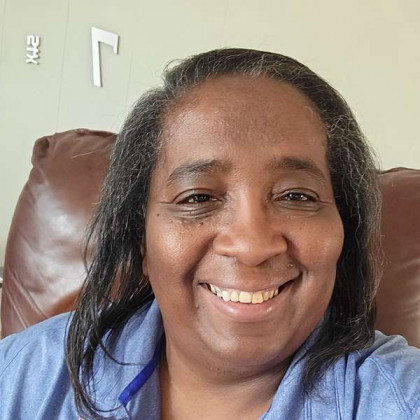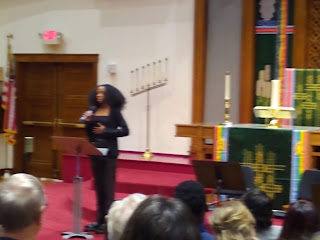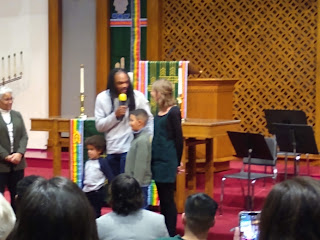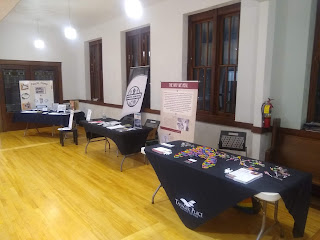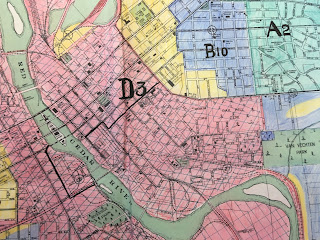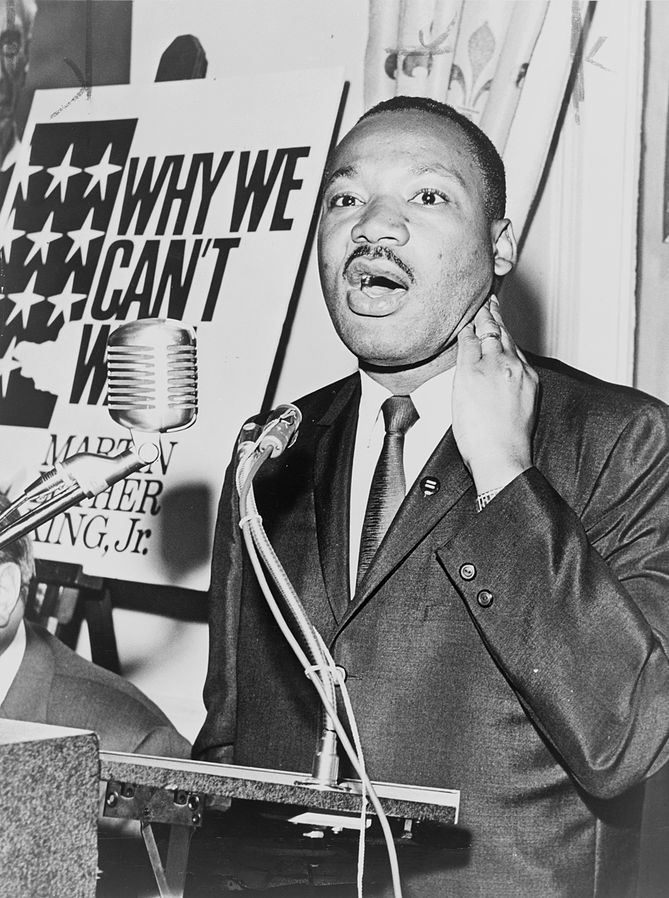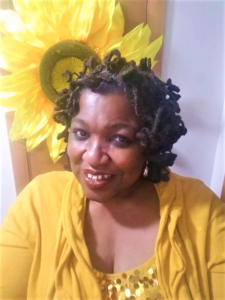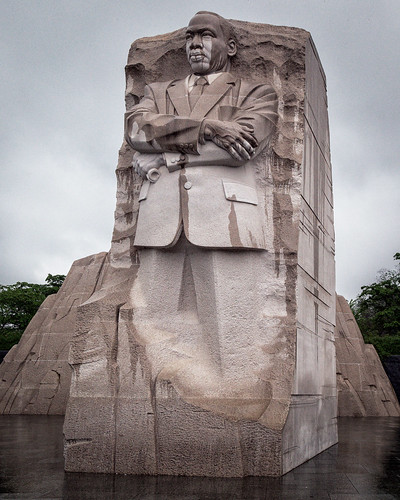 |
| James Weldon Johnson (from www.jamesweldonjohnson.org) |
Sing a song full of the faith that the dark past has taught us,
Sing a song full of the hope that the present has brought us...
--JAMES WELDON JOHNSON
The African American Museum of Iowa stepped up in a big way this Martin Luther King Day. For the second year in a row, observance in Cedar Rapids was at risk of being overshadowed by events: last year by the Iowa precinct caucuses, and this year by the presidential inauguration. The A.A.M.I. provided reduced admission and child-friendly programming all day long, including displays and video documentaries.
For many years, most recently in 2023, Cedar Rapids commemorated Martin Luther King Day with an evening service at St. Paul's United Methodist Church. The highlight for me was always when everyone in attendance stood to sing "Lift Every Voice and Sing," one of my all-time favorite hymns that deserves wider usage. Like "Joy to the World," it's tied by tradition to a particular season, but its message is timeless.
 |
| Anne Harris Carter presents Mike and Toni Loyal with the 2025 Who is My Neighbor Award, as Pastor Jonathan Heifner looks on (Sunday 1/19 at St. Paul's United Methodist Church) |
"Lift Every Voice and Sing" began as a poem composed by James Weldon Johnson on the occasion of Lincoln's birthday in 1900 (PBS 2013). It was Johnson's brother, John Rosamond Johnson, who later set the poem to music with its distinctive dual melodies.
James Weldon Johnson (1871-1938) was 29 when he wrote the poem that became such an enduring song. His was no "cockeyed optimist" (South Pacific reference) about racial conditions in America as he wrote his song, either; he spent much of the following two decades lobbying the federal government fort a national anti-lynching law, which was finally passed in 1919.
Johnson must have been a whirl of talent and energy, for at various times in his life he was an elementary school teacher, founder of a high school, a lawyer, a prolific composer (collaborating with his brother) for Broadway shows, author, college professor, diplomat to Venezuela and Nicaragua, and civil rights activist for the NAACP ("Civil Rights Leaders: James Weldon Johnson" n.d.).
Here is a 2009 choral version of "Lift Every Voice and Sing" by the Metropolitan Baptist Church choir (5:00):
And here is a hip-hop version from Austin, Texas, performed by Doughboy the Midwest Maestro and DJ Kool Rod. A casual Internet search reveals dozens of versions in a variety of genres. It is one versatile song.
Its repeated references to past tribulations seems particularly appropriate to oppressed groups i.e. not suburban white bloggers. But the lyrics, like King's often-articulated vision, are all-inclusive: "Lift every voice and sing, let earth and heaven ring" (italics mine). We all live in hope of seeing unity; we all stand in need of redemption. It is hope well-placed, too, because only unity produces the social peace and prosperity we need to live well.
We have come, treading our path through the blood of the slaughtered,
Out from the gloomy past, Till now we stand at last
 |
| Martin Luther King Jr (1929-1968) at the A.A.M.I. |
 |
| Suburbia was/is white because of inequality and discrimination; Who will tell this story if government threatens schools? (Display photographed at A.A.M.I.) |
Donald J. Trump, triumphantly returned to office on MLK Day itself, has thrived exclusively on disunity. Even now, he is a sore winner, utterly ungracious about the (rather favorable) conditions he inherits from his predecessor. During the awful wildfires that still rage in California, he has promoted disinformation, blasted anyone taking actual responsibility as "incompetent," and called the California governor Gavin "New-scum," which insult Newsom probably last heard in 1st grade. I was tempted to see what "weird shit" (George W. Bush's 2017 characterization) Trump would produce in the inaugural address, but decided my time would be better spent at the African American Museum.
 |
| Resist hate with love, said King (My picture taken at A.A.M.I.) |
Building the cities of the future won't be done with name-calling; it will be done with ongoing learning and persistent hard work.
SEE ALSO:
"MLK and the Winter of Discontent," Holy Mountain, 16 January 2024
James Weldon Johnson Foundation page
Kristin Du Mez, "From the Spiritual Underground: Love and Justice for Nov. 20 and Beyond," Du Mez Connections, 19 January 2025
Kathryn Mobley, "West Dayton Exhibit Inspired by Martin Luther King Jr's Dayton Speech," WYSO, 20 January 2025
Pete Saunders, "CSY Replay #16: More on Segregation," Corner Side Yard, 20 January 2025






